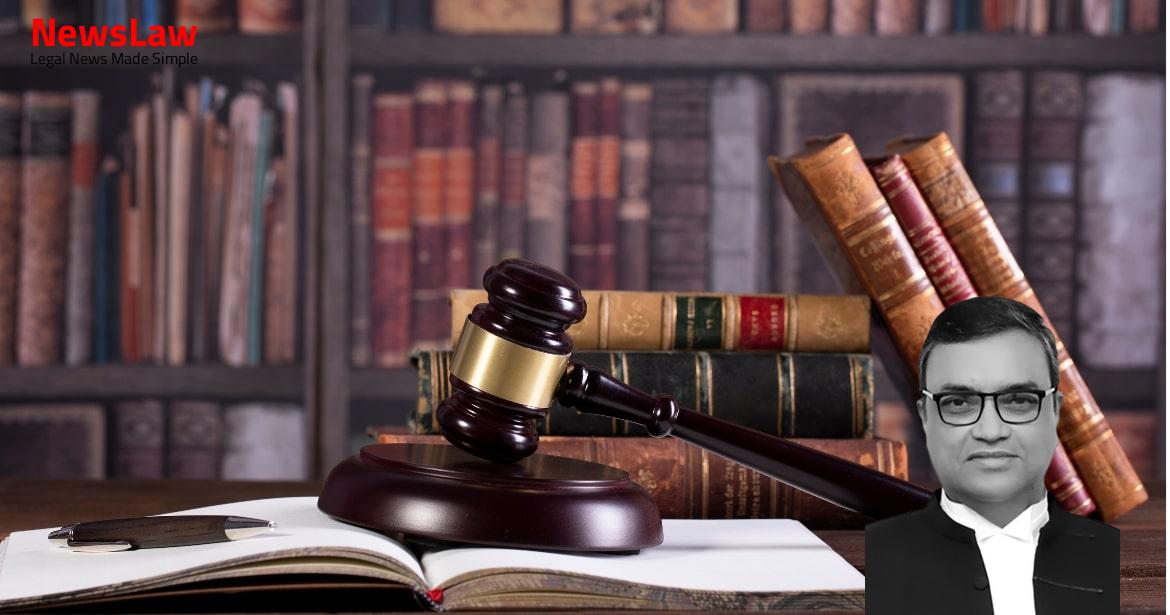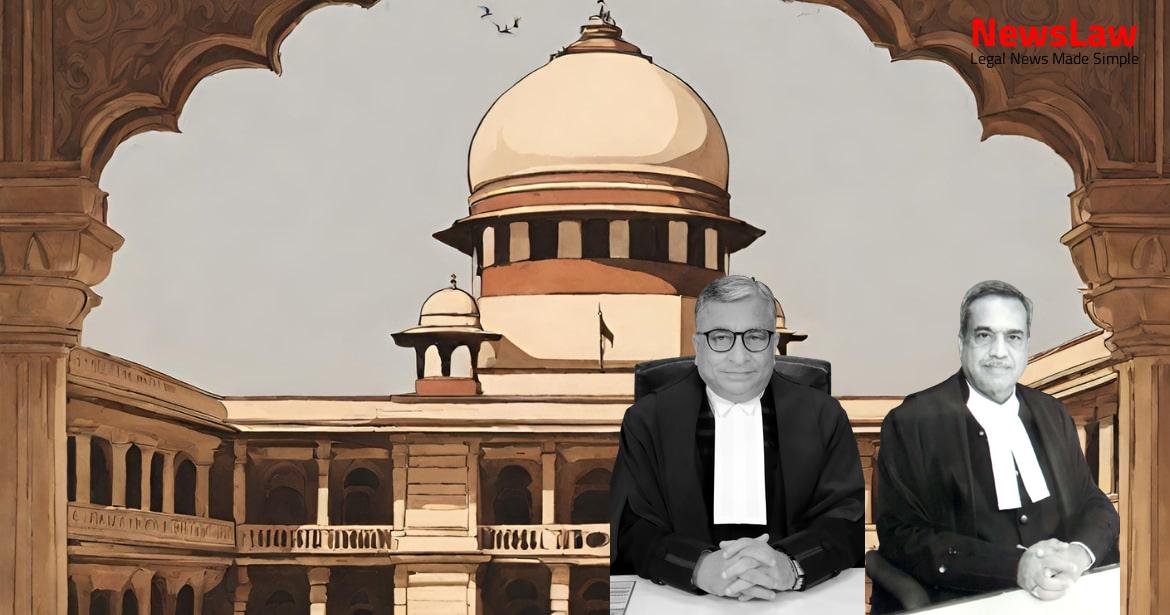In a significant ruling by the Supreme Court of India, the case of B. Ramesh Hegde v. Praveen Shetty addresses the adherence to stamping standards and fiscal regulations in legal documents. The court’s decision emphasizes the importance of upholding legal integrity and compliance with the law to protect state fiscal interests.
Facts
- The appellant filed two interlocutory applications on 25 June, 2010, in the suit filed by the respondent.
- The GPA was prepared on a Rs. 100 stamp paper, making it insufficiently stamped as per Section 34 of the 1957 Act.
- An insufficiently stamped document needed to be impounded with a penalty of ten times the duty value paid.
- The appellant instituted a civil suit against B. Ramesh Hegde and Praveen Shetty, seeking a declaration that the Sale Deed dated 3 October 2003 was null and void.
- The respondent objected to the interlocutory applications, stating that the appellant had to utilize the remedy under Section 58 of the 1957 Act and therefore could not seek a review.
- The Trial Court allowed the I.A.s and directed the respondent to pay deficit stamp duty and penalty for a power of attorney.
- The respondent was dissatisfied with the Trial Court’s order and approached the High Court.
- The High Court allowed the petition, noting that the document had been marked, admitted in evidence, and exhibited.
Also Read: Mistaken Bid Rectification Case: Balancing Equity in Tender Matters
Arguments
- Mr. Chaturvedi, learned counsel for the appellant, argues that admission of an insufficiently stamped instrument without judicial consideration should not prevent the court from reconsidering its admissibility.
- He requests the impugned order to be set aside and the civil appeal allowed with liberty to the respondent to take action according to the Trial Court’s order.
- The only remedy available for the respondent is under section 58 of the Stamp Act.
- Various provisions of the 1957 Act were cited to show the High Court’s view was incorrect.
- In the regular procedure, a document is marked as an exhibit with the Judge’s initials underneath, satisfying Order 13 Rule 4 requirements.
- The respondent argues that there must be a specific statement and endorsement signed by the Judge for proper admission under Order 13 Rule 4.
- Therefore, the contention that the document was not adequately marked and should be rejected due to insufficient stamping is not valid.
- The trial court lacks the jurisdiction to reassess this issue.
- The impugned order setting aside the Trial Court’s order was justified due to the admission of the GPA in evidence.
- Once an instrument is admitted in evidence, the admission cannot be questioned by any court.
- The only remedy provided by the 1957 Act for challenging the admission is through revision under section 58.
- Mr. Guru, the respondent’s counsel, defended the impugned order citing correctness in law and facts.
- Emphasis was placed on the importance of raising objections to a document’s admissibility when it is first tendered.
Also Read: Judgment Summary: Balancing Equity in Commercial Contracts – Original Name v. State
Analysis
- The Trial Court did not deliberate on the admissibility of the GPA when it was marked as an exhibit.
- The absence of judicial determination on the sufficiency of stamping renders Section 35 of the 1957 Act inapplicable.
- Any objection regarding insufficient stamping must be raised prior to admission of the document as evidence.
- The court’s duty to impound unstamped or insufficiently stamped instruments is emphasized.
- The court should ensure requisite stamp duty and penalty are paid for unstamped or insufficiently stamped instruments.
- The Trial Court’s inherent power under Section 151 of the CPC was exercised to rectify the failure to apply judicial mind during admission of the GPA as evidence.
- The document was marked without the court applying its mind or objections from the other party, allowing for reconsideration of its admissibility.
- A determination on admissibility, once made, cannot be questioned except as per Section 35 of the 1957 Act.
- Section 36 of the Stamp Act prevents questioning the admission of a document on stamping grounds once it has been accepted into evidence.
- The importance of upholding stamp duty regulations for the authenticity and enforceability of legal instruments is highlighted.
- Section 35 of the 1957 Act states that once an instrument has been admitted in evidence, its admissibility cannot be questioned on the grounds of it not being duly stamped.
- The admissibility of an instrument shall not be contested at any stage of the same suit or proceeding unless provided in section 58 of the Act.
- When a document’s admissibility is questioned due to improper stamping, it must be decided immediately when presented as evidence.
- Tendency to postpone the decision to avoid interruption in recording evidence should be avoided.
- Marking the document in evidence subject to objection does not judicially decide admissibility.
- Objection as to admissibility on the ground of improper stamping must be decided when the document is tendered in evidence.
- Parties in litigation must be alert to ensure that documents are not admitted without proper consideration of objections.
- The court must prevent circumvention of legal obligations to ensure compliance and adherence to uphold the rule of law.
- Insufficient stamp duty on an instrument must not pass unchallenged, to protect legislative intent and state fiscal interests.
- Compliance with substantive and procedural requirements of statutes like the 1957 Act must be ensured by the courts.
- The court’s duty is paramount in upholding the law, and any deviation would set a detrimental precedent, eroding the legal system’s integrity.
Also Read: Landmark Judgment Upholding Rights of Divorced Muslim Women
Decision
- Proceedings of the civil suit remained stalled due to the pending appeal
- Expectation for the Trial Court to proceed expeditiously and in accordance with the law
- The appeal is allowed without any order for costs
- No error found in the Trial Court’s order dated 19 October, 2010
- The impugned order of the High Court dated 26 September, 2011 is set aside
- Restoration of the Trial Court’s order
Case Title: G.M.SHAHUL HAMEED Vs. JAYANTHI R.HEGDE (2024 INSC 493)
Case Number: C.A. No.-001188-001188 – 2015



